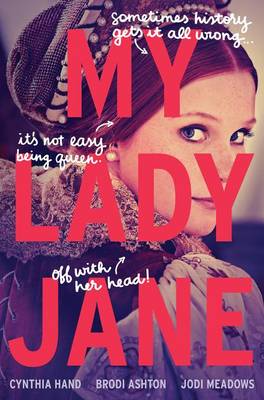Reviewed by Katie King on
I didn't know the story of Jane Grey, but I feel as though I have a better picture of it now. I like that this book taught me a but of real history. And being that I watch Reign, the TV show about Mary Queen of Scots, I could also link some of that to the book. It gave the plot some sense of historical legitimacy.
Beyond historical legitimacy, the book also doesn't take itself too seriously. Dialogue and narration were often interspersed with modern language and commentary from the authors. This struck a nice balance between being too historical (and possibly boring) and too contemporary (and generic, imo).
The other pieces of the book - characters, romance, etc - were all a smashing hit. I loved it. But the one drawback here is pacing.
I felt as though we moved glacially through the first 300 pages (which is fine), but then the last 190 pages covered several days. We were in France for a short bit, we snuck into the tower for a short bit, we confronted Mary for a short bit. It's as though the authors wrote the book how they wanted, initially, but then saw they were running out of pages so they jammed everything else into it. It's very disjointed, and maybe representative of how authoring duties were divided?
Reading updates
- Started reading
- 15 August, 2016: Finished reading
- 15 August, 2016: Reviewed
